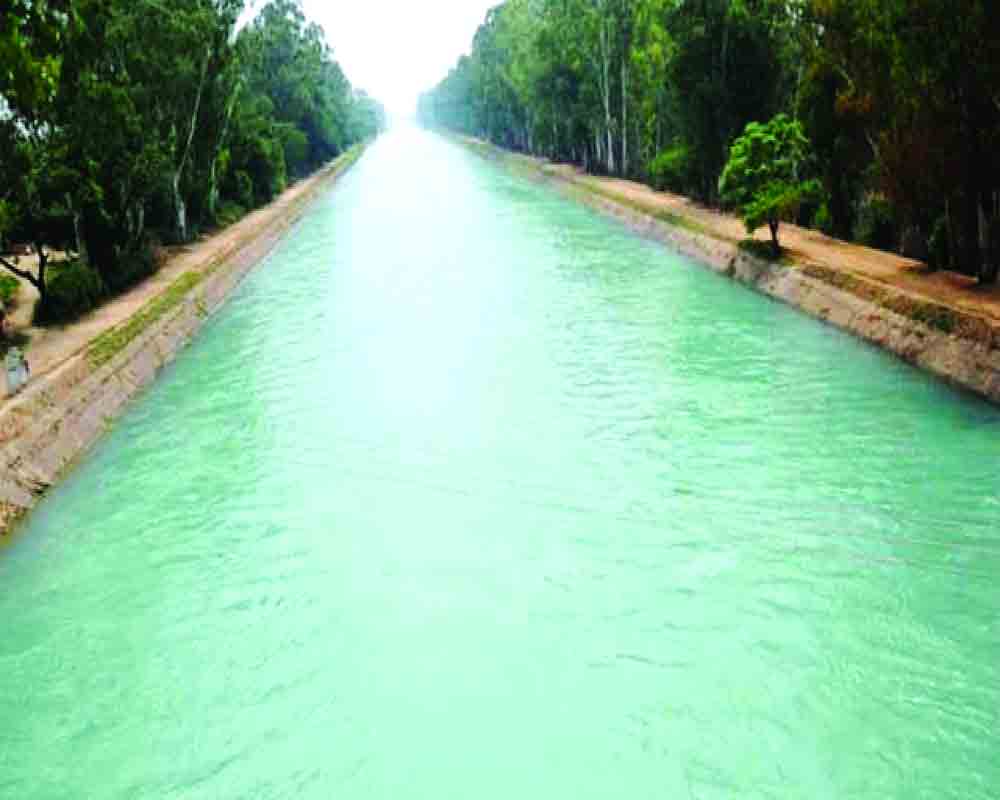The much-publicised debate on the Sutlej Yamuna Link canal was all sound and fury but had no substance
The much touted ‘mega debate’ floated with 'sound and fury' has ended 'signifying nothing'. In the name of the 'debate', the ninety-minute-long lecture by the Chief Minister, being a one-sided report on the inefficiency and selfishness of the Chief Ministers in the past, missed all their actions to defend the state on river waters, which in no way develops the argument in favour of Punjab, although the fuller objective account of the events would divulge that no politician of Punjab has ever favoured the division of Punjab river waters willingly, however weak their resistance could be. One cannot claim ‘sainthood’ by calling others ‘devil’; in politics, one can count the acts of ‘omission and commission’ by political parties in power to seek power but once in power, one needs to perform.
To perform on and handle the matter of river waters effectively, the Chief Minster should form a high-powered committee of experts to prepare a draft proposal for discussion and suggestions by all the political parties in an all-party (including the Left, BSP and others) meeting and then compile the final dossier to be submitted to the central government. Instead of a discourse in the negative, the draft proposal may build on the positive actions in the past. For example, it can highlight that though the government of India allocated 3.5 MAF water to Haryana vide its notification in 1976 when Giani Zail Singh was the Chief Minster, yet he wrote a letter requesting a review of this notification; that Parkash Singh Badal filed a writ petition in 1979 challenging the notification; that the Akali Dal and CPIM had jointly launched ‘KapuriMorcha’ to oppose the digging of SYL canal in 1982, although an accord was signed by the then Chief Minister of Punjab in 1981; that this accord was not approved by the cabinet and ratified in the Punjab Assembly; that the Punjab Assembly with Captain Amrinder Singh as the Chief Minister unanimously passed the 'Punjab Termination of Agreements Bill' in 2004, although he accompanied the Prime Minister Indira Gandhi to launch the digging of SYL canal near the village Kapuri; that the Punjab Assembly in 2016 with Parkash Singh Badal as the Chief Minister unanimously approved de-notification of the land acquired for SYL canal, although the notification for the same was issued when Parkash Singh Badal was the Chief Minister during 1977-80. Such a discourse, not oriented to votes but to the state’s interest, is likely to gather support from not only the political parties but also the NGOs and the civil society.
The dossier can build on the argument that the 'Punjab Termination of Agreements 2004' is yet operational because the Supreme Court has not cancelled it. It cannot be challenged because constitutionally, it is within the powers of the assembly to legislate on state matters and water is a state matter. The dossier can also include reports on the deepening ground and surface water as well as rising demands of water in Punjab; further that the need for water in Haryana is not for drinking and ‘subsistence agriculture’ but for the ‘market-driven agriculture’ and that this need of Haryana can be met from other sources such as the Sharda river. Just as to perform the African dance ‘tango’, two persons are required, to resolve the Punjab water distribution matter in the interest of the state, all parties in the state should join in delinking it from the vote harvesting and 'tango' together; otherwise, people's trust deficit will deepen low. They need not raise the emotions of the people of Punjab to conflict with the people of Haryana.
(The writer is a retired professor of Guru Nanak Dev University, Amritsar and a Member, of the Governing Council, INTACH, views are personal)



























